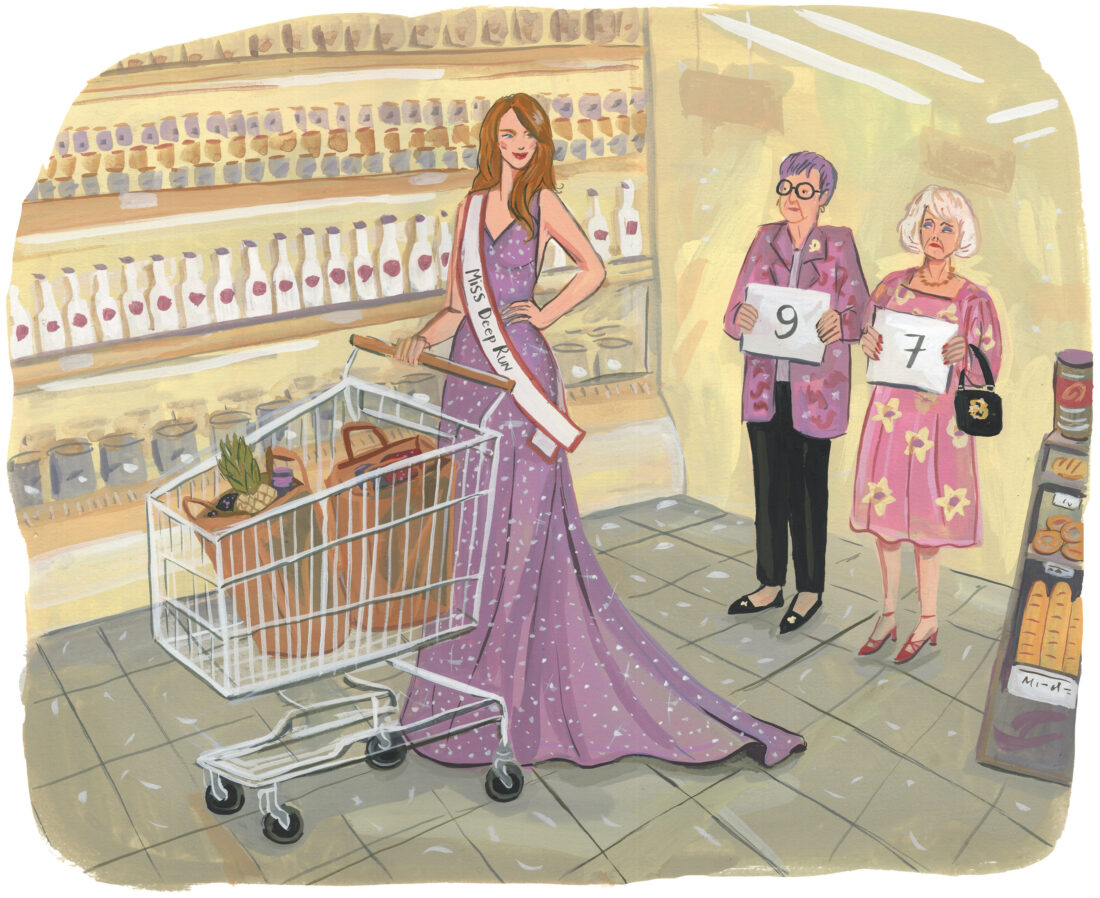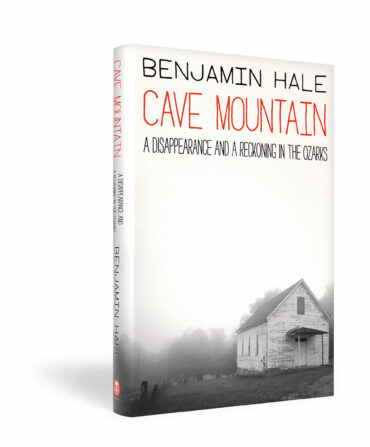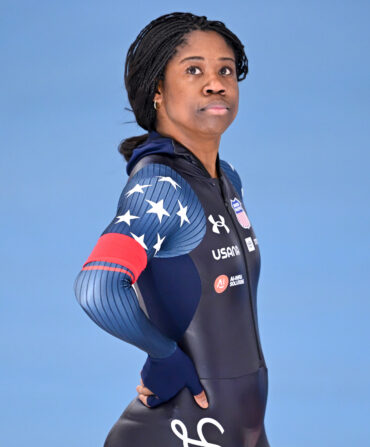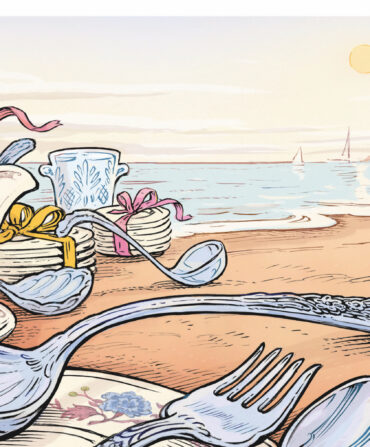On our drive home to Deep Run one afternoon, as I hugged the inside lane of the “bad curve” on John Green Smith Road, a wrinkled gentleman subtly raised his index finger and tipped his cap as his nineties-model Ford pickup puttered past. With a muscle memory carved from countless miles on country roads, I deftly returned his salutation. My son, who at twelve almost always rides shotgun (but almost never detaches his eyes from his phone), turned to me, perplexed, and asked, “How do you know that man?” I told him I had no idea who he was, but I knew it was good manners to reciprocate a finger wave. I had learned by example—I grew up watching my parents (and everybody else who drove me anywhere) do it on the two-lane roads around here. Theo’s response? “Weird.”

Determined that my kids get a dose of country mouse to balance the city slicker traits I’ve apparently nurtured, I gave Theo an impromptu lesson on how to be cordial the country way, demonstrating how to throw up his own finger and nod his noggin at every car, truck, and El Camino that came his way. After explaining what exactly an El Camino looked like and lamenting its demise, I expounded on the magic of the index wave: The gesture renders you polite with minimal effort.
The salute had felt natural to me back when just about everyone in Deep Run farmed, and that synergy of season and purpose, combined with our relative solitude, made where we lived feel more like a lumbering neighborhood than an isolated address. Even if you didn’t know the person you were finger waving to, there was a good chance you were (or soon would be) connected by blood, marriage, business, or church. And even though most of our community’s multigenerational family farms reached the end of their lines when the tobacco industry died and the children moved to places with stoplights, the habit stuck hard.
Theo wasn’t having it. He had seen me put on decent clothes and concealer before a trip to the Piggly Wiggly too many times, he said, to believe we lived in any kind of rural anonymity. He wasn’t wrong. Going to the grocery here can feel like an upside-down awards show, where everybody knows you and can’t wait to report back on how you look. Not only that, but it comes with its own rural courtesies: Even if they catch you fishing a Lean Cuisine out of the frozen section, you’re required to acknowledge them and answer any and all questions about your private life. They feel obliged to ask because they watched the movie of your childhood from their church pew—and they feel cheated because all the Oscar-worthy stuff happened afterward.
So yes, perhaps some things have remained the same in Deep Run, but I was still hell-bent on highlighting the ways our community used to be more connected; how we just naturally acted more hospitable, kind, and generous with one another. And how those interactions had made living in a place without sidewalks, parks, or population worth it. It was a different time, and I was prepared to sneeze nostalgia all over it to prove a point to my twins.
I began with the time their dad and I had just moved to a cabin down a long path in Eastern North Carolina, and our elderly neighbors approached our home by car at night, unannounced. Because we had lived in New York for years and never met a neighbor on purpose, we hid in the bathroom till they left, genuinely confused by their intentions. The next day, when E. D. and Tessie Mae crept back down our dirt drive around noon, we reluctantly let them in, and they welcomed us to the crossroads with a pile of home-cured pork products and an invitation to Pleasant Hill church.
It came as no surprise to Theo and Flo that their Jewish father and recovering-Baptist mother gratefully accepted the ham, seasoning meat, and sausage but declined the group worship. Still, the visit didn’t impress the twins, who were also well aware of the startling effect of neighbors (in their case, grandparents, aunts, and uncles) dropping by with no warning at all hours, so I needed to dig deeper for a story that spoke more clearly to their 2023 preteen sensibilities.
I landed on telling them about Tom Heath, who every Saturday morning used to bring us four chickens he had cooked on the coals left from barbecuing a pig for Deep Run’s erstwhile B&S Café. We didn’t lock our doors back then, of course, so Mr. Heath would just come on through the carport door and drop the foil-covered metal bowl on the table. The room I shared with my sister Johna opened to the kitchen, so we would rise on weekend mornings to the aroma of smoke and vinegar-laced charred chicken. Although the memory remains one of my favorites, and Tom’s chicken inspired my blueberry barbecue chicken that both Theo and Flo love, they found the image of their aunt and me gnawing on legs and wings in our twin beds less than enviable. Flo then added that we only recently started locking our doors and she is the one who locks them.
Outwitted a little by my offspring, I decided to take a more direct path to juxtaposing their Deep Run childhood with my own and announced that they would start at that very second to show audible signs of respect for their elders. That meant they would respond to me with “Yes, ma’am” and “No, ma’am” and I would be hearing a lot more “please”s and “thank-you”s coming from their direction as well. In addition, they were going to sit down and write their first-ever thank-you notes—immediately.
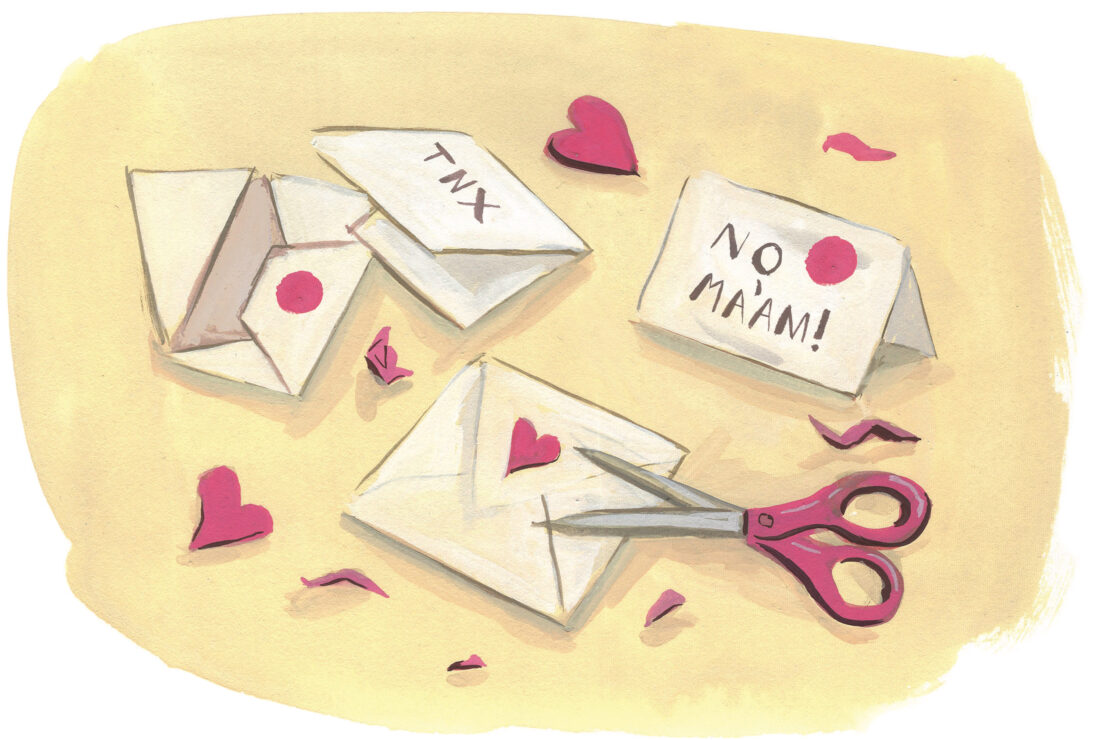
I coupled the news with a much different wave of my index finger than the one I stretched out toward the wrinkled man in his truck, and for once, no snickers emerged. I took the reverence as a sign I should fetch the thank-you cards and follow through with my demands. It was going to be tricky, though; the only things I could find that resembled stationery were postcards announcing my book tour in 2019.
Determined not to squander this teachable moment, I grabbed construction paper and scissors and went about cutting and folding something that looked appropriate for a kindergarten thank-you. Hopeful that, since my kids had never dabbled in hard-copy gratitude before, they wouldn’t recognize how amateur my red and blue cards looked, I dashed back and gave my pupils the brushstrokes of what their notes should cover and how to address the envelopes when I eventually bought them.
At this point, I hadn’t heard any “Yes, ma’am”s or “please”s yet, and I could tell they were humoring me more than honoring me, but Theo and Flo seemed ready to write, and I knew that if I planned to turn this ship around and raise proper country children with good manners, this was a step in the right direction. Two thank-you notes in, Theo and Flo had done their part. Now I just need to put the cards in the mail—the box, not the post office. That would take up another hour.
Vivian Howard is a chef; the award-winning author of the cookbooks Deep Run Roots, a New York Times bestseller, and This Will Make It Taste Good; the creator and star of the public television shows Somewhere South and A Chef’s Life, which won Peabody, Emmy, and James Beard awards; and a restaurateur whose offerings include Chef & the Farmer, Benny’s Big Time, Handy & Hot, and Lenoir. She is also a Garden & Gun contributing editor and writes the magazine’s Country Accent column.


